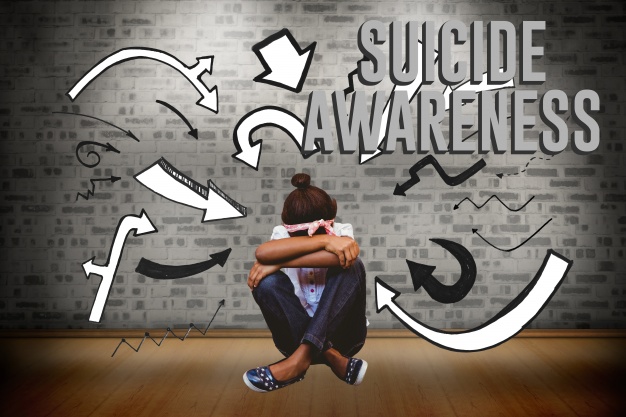- Have any questions?
- +91 94087 63089
- credolegalfirm@gmail.com
Student & Suicide In India

Principle of Confidentiality in Arbitration Proceedings
September 16, 2020
Right to default bail under Section 167(2)
November 3, 2020“Live a little every day, Ek Hi Zindagi Mili Hai (You have got but one life).” These were the last few words found on an eight-page-long note written by a deceased postgraduate student at the Indian Institute of Technology, Hyderabad (IIT-H). The student was found dead on July 2 last year in his hostel room.
A recent look at the suicide prevention laws in India and the avenues available for mental health in light of the National Suicide Prevention Day on 10th September.
The rate at which suicide has been increasing in the country has been staggering off late with the numbers increasing steadily since 2016. Post this year the number of suicides in India has increased to a number of 230,314 in total, making suicide one of the most common causes of death in the nation. The age group wherein such a tragedy occurs has been seen to be between 15-29 & 15-39. With the mounting stress and lack of awareness, especially with the taboo associated with suicide and mental health, this phenomenon has only become as widespread as a pandemic.
According to 2015 data from the National Crime Records Bureau, 8934 (6.7% of all suicides) students are committing suicide every year. That’s one student every hour. Despite being one of the most advanced states in India, Maharashtra has the highest number of student suicides with 1230 of the 8934 suicides occurring here (14%) and Tamil Nadu has the second highest with 955 of the 8934 suicides (10%).
“Every hour, one student commits suicide in India”. Hindustan Times. 2017-04-08. Retrieved 2020-06-21.
Every hour one student commits suicide in India, with about 28 such suicides reported every day, according to data compiled by the National Crime Records Bureau (NCRB). The NCRB data shows that 10,159 students died by suicide in 2018, an increase from 9,905 in 2017, and 9,478 in 2016
Garai, Shuvabrata (2020-01-29). “Student suicides rising, 28 lives lost every day”. The Hindu. ISSN 0971-751X. Retrieved 2020-06-21.
It’s not uncommon to see students stressed, anxious and under pressure in a society that believes in keeping students in check by pushing them beyond their limits towards higher achievements. Young high school students are forced to enrol in coaching factories, where they cram for exams to get into prestigious institutions like IIT. Students follow draconian rules and study schedules that leave them feeling depleted and depressed.
Section 309 of the Indian Penal Code criminalises attempted suicide as well as suicide assistance.
Section 309 states:Whoever attempts to commit suicide and does any act towards the commission of such offence, shall be punished with simple imprisonment for a term which may extend to one year or with fine, or with both.[1]
Although section 309 is still in effect, the Mental Healthcare Act, 2017 (enacted July 2018) has restricted its application. The relevant provision of the new act states:
Notwithstanding anything contained in section 309 of the Indian Penal Code, any person who attempts to commit suicide shall be presumed, unless proved otherwise, to have severe stress and shall not be tried and punished under the said Code
Suicide is a crime in some parts of the world. However, while suicide has been decriminalized in many western countries, the act is Social stigma and discouraged. As far as legislation goes, section 309 of the Indian Penal Code, deals with attempt to committing suicide. Attempt to commit suicide states that whoever attempts to commit suicide or tries to undertake any act towards the commission of such an offence, will be punished under the law with imprisonment which lasts for a term which may extend up till a year or with a fine or with both.


